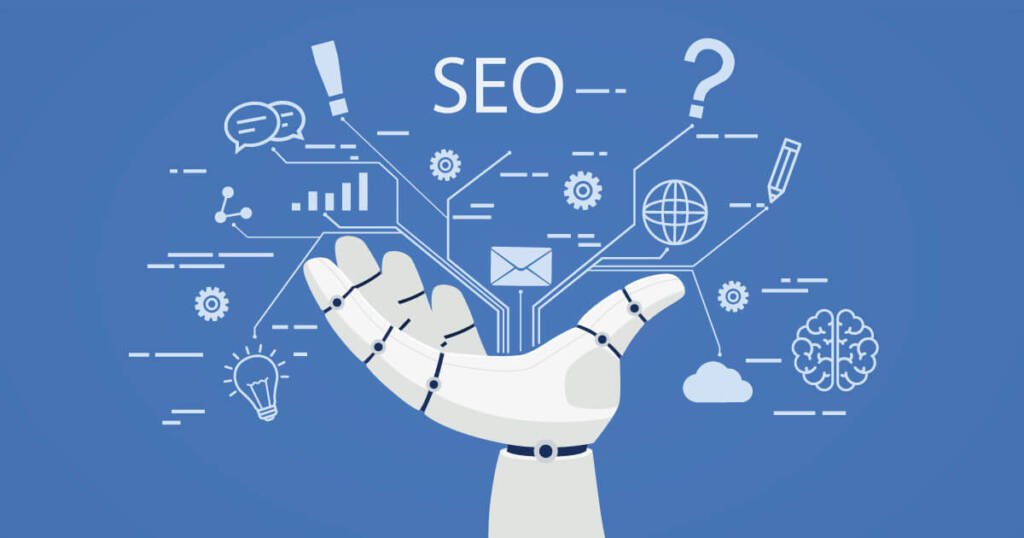Artificial Intelligence (AI) has become a transformative force across various industries, and digital marketing is no exception. Within the realm of search engine optimization (SEO) and search engines, AI is playing an increasingly pivotal role, reshaping how content is indexed, ranked, and delivered to users. This comprehensive article explores the profound impact of AI on search and SEO, examining its current applications, future potential, and strategies for leveraging AI to enhance SEO efforts.
The Evolution of Search Engines with AI
Search engines have undergone significant transformations since their inception, evolving from simple keyword-based systems to sophisticated algorithms capable of understanding context and intent. AI has been a driving force behind this evolution, enabling search engines to deliver more accurate and relevant results.

- Early Search Engines: Keyword-Based Systems
The earliest search engines relied heavily on keyword matching to deliver search results. Webmasters could easily manipulate rankings through keyword stuffing and other tactics. However, this approach often led to irrelevant or low-quality results for users.
- Introduction of PageRank
Google revolutionized search with its PageRank algorithm, which considered the quantity and quality of backlinks to determine a page’s authority. This was an early step towards more sophisticated ranking systems, but it still had limitations, primarily focusing on link-based metrics.
- Semantic Search and AI
The introduction of semantic search marked a significant shift. Semantic search focuses on understanding the meaning and context behind queries rather than just matching keywords. AI plays a crucial role in semantic search, enabling search engines to interpret natural language, understand synonyms, and recognize user intent.
Key AI Technologies Shaping Search and SEO
Several AI technologies are instrumental in shaping the future of search and SEO. These technologies enhance the capabilities of search engines and provide new opportunities for SEO professionals to optimize content.
Machine Learning
Machine learning, a subset of AI, involves training algorithms to learn from data and improve over time. In the context of search engines, machine learning algorithms analyze vast amounts of data to identify patterns and make predictions. Key applications include:
- Ranking Algorithms: Machine learning powers modern ranking algorithms, enabling search engines to prioritize high-quality, relevant content.
- Spam Detection: Algorithms can identify and penalize spammy or manipulative SEO tactics.
- User Behavior Analysis: Machine learning analyzes user behavior to refine search results based on engagement metrics.
Natural Language Processing (NLP)
NLP enables search engines to understand and interpret human language. This technology is crucial for processing and responding to voice searches, understanding context, and recognizing synonyms and related terms. Key applications include:
- Voice Search: NLP powers voice-activated assistants like Google Assistant, Siri, and Alexa, allowing users to conduct searches using natural language.
- Featured Snippets: NLP helps identify and extract concise answers to user queries for featured snippets.
Neural Networks
Neural networks, modeled after the human brain, are used to process complex data and identify intricate patterns. They are particularly effective in image and voice recognition, enabling advanced search capabilities. Key applications include:
- Image Search: Neural networks enhance image recognition and search capabilities, allowing users to search using images instead of text.
- Voice Search Accuracy: Improved voice recognition accuracy enhances the user experience and expands the use of voice search.
AI’s Impact on Search Engine Algorithms
AI has led to significant advancements in search engine algorithms, making them more sophisticated and user-centric. Key developments include:
- RankBrain
RankBrain, introduced by Google in 2015, is an AI-based component of the search algorithm. It uses machine learning to interpret complex queries and provide more relevant search results. RankBrain improves search accuracy by considering the context and intent behind queries, even if they are ambiguous or unfamiliar.
- BERT
BERT (Bidirectional Encoder Representations from Transformers) is another AI-driven innovation by Google. Launched in 2019, BERT enhances the search engine’s understanding of natural language. It processes words in relation to all other words in a sentence, improving the interpretation of context and nuances. This leads to more accurate results, particularly for long-tail queries and conversational searches.
- Neural Matching
Neural matching is an AI technology that helps search engines understand the meaning behind queries by analyzing relationships between words and concepts. It enables search engines to match queries with relevant content even if there is no exact keyword match. This technology enhances the search experience by delivering results based on intent rather than mere keyword matching.
- AI and User Experience
AI’s influence on search extends beyond algorithms to enhance the overall user experience. Key areas where AI contributes include:
- Personalized Search Results
AI enables search engines to deliver personalized results based on individual user behavior, preferences, and search history. Personalization enhances relevance and improves user satisfaction by tailoring results to specific needs.
- Voice Search
Voice search, powered by AI and NLP, is gaining popularity due to its convenience and accuracy. Users can conduct searches using natural language, and AI-driven assistants provide concise and relevant answers. The rise of voice search is reshaping SEO strategies, emphasizing conversational keywords and featured snippets.
- Visual Search
AI-driven visual search capabilities allow users to search using images instead of text. Technologies like Google Lens and Pinterest Lens enable users to identify objects, landmarks, and products through images. Visual search is transforming e-commerce and local SEO by providing new ways for users to discover content.
- Leveraging AI for SEO
AI offers numerous opportunities for SEO professionals to enhance their strategies and improve search rankings. Key areas where AI can be leveraged include:
- Content Optimization
AI-powered tools can analyze existing content and provide recommendations for optimization. These tools assess factors like keyword usage, readability, and relevance, helping marketers create high-quality content that aligns with user intent.
- Keyword Research
AI-driven keyword research tools analyze search trends, user behavior, and competitor data to identify high-potential keywords. These tools provide insights into search volume, competition, and related keywords, enabling marketers to target the most effective terms.
- Predictive Analysis
Predictive analytics, powered by AI, forecasts future search trends and user behavior. By analyzing historical data and current trends, predictive analytics helps marketers anticipate changes in search demand and adjust their strategies accordingly.
- Chatbots and Virtual Assistants
AI-powered chatbots and virtual assistants enhance user engagement by providing real-time support and answers to queries. Integrating chatbots into websites can improve user experience and increase dwell time, positively impacting SEO.
- Challenges and Ethical Considerations
While AI offers significant benefits, it also presents challenges and ethical considerations that must be addressed.
- Data Privacy
The use of AI involves processing vast amounts of user data, raising concerns about privacy and data security. Search engines and marketers must adhere to data protection regulations and ensure transparent data handling practices.
- Bias and Fairness
AI algorithms can inadvertently perpetuate biases present in training data. Ensuring fairness and reducing bias in AI-driven search algorithms is crucial to provide equitable search experiences for all users.
- Algorithm Transparency
The complexity of AI algorithms can make it challenging to understand how search results are generated. Ensuring transparency and providing explanations for algorithmic decisions can build trust with users and marketers.
The Future of AI in Search and SEO
The integration of AI into search and SEO is still in its early stages, and its potential continues to expand. Future developments are likely to include:
- Advanced Personalization
AI will continue to enhance personalization by delivering even more tailored search results based on user preferences, behavior, and context. This will improve user satisfaction and engagement.
- Voice and Visual Search Growth
Voice and visual search are expected to grow significantly, driven by advancements in AI and NLP. Marketers will need to adapt their SEO strategies to accommodate these emerging search modalities.
- Enhanced Predictive Analytics
Predictive analytics will become more sophisticated, enabling marketers to anticipate user behavior and search trends with greater accuracy. This will facilitate proactive SEO strategies and content planning.
- Ethical AI Development
As AI technology evolves, there will be increased focus on ethical AI development, ensuring fairness, transparency, and accountability in search algorithms. Addressing ethical considerations will be crucial for building user trust and ensuring equitable search experiences.
Conclusion
AI is revolutionizing search and SEO by making search engines smarter, more intuitive, and user-centric. From advanced ranking algorithms to personalized search experiences, AI is reshaping how content is discovered and consumed. For SEO professionals, leveraging AI technologies offers opportunities to enhance content optimization, keyword research, and predictive analysis.
As AI continues to evolve, staying informed about its impact on search and SEO will be essential for maintaining a competitive edge. By embracing AI-driven strategies and addressing ethical considerations, marketers can harness the power of AI to drive better search performance and deliver more relevant and engaging content to users.
Welcome to SEM Spartans, where knowledge is power, and the possibilities are endless. Our mission is to educate, inspire, and empower our readers to become digital savvy marketers. Whether you’re a business owner looking to expand your online presence, a marketing professional seeking to enhance your skills, or an aspiring entrepreneur eager to learn the ropes of digital marketing, SEM Spartans is your trusted digital blog platform.



